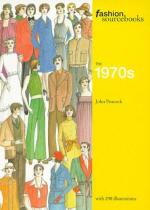|
This section contains 337 words (approx. 2 pages at 300 words per page) |

|
Computer Lib.
Despite the pin-striped reputation personal computers acquired from their rapid expansion into the business market in the 1980s, they began their existence with solidly countercultural credentials. An important early manifesto was Theodore Nelson's 1974 book, Computer Lib/Dream Machines. Nelson believed personal computers would free individuals from the big corporate computers, giving them access to their own computing power. Small, easy to use, and affordable, microcomputers would be available to all, with free software, community access, and "liberated information."
The Chip.
The computers of the early 1960s were mammoth affairs, requiring entire rooms to house them, and so expensive that only large organizations and the government could afford them. Later, minicomputers were produced, more attractive to businesses and researchers in size and cost. The breakthrough that made the personal microcomputer possible came in 1971, when Theodore Hoff of Intel created the microprocessing...
|
This section contains 337 words (approx. 2 pages at 300 words per page) |

|




